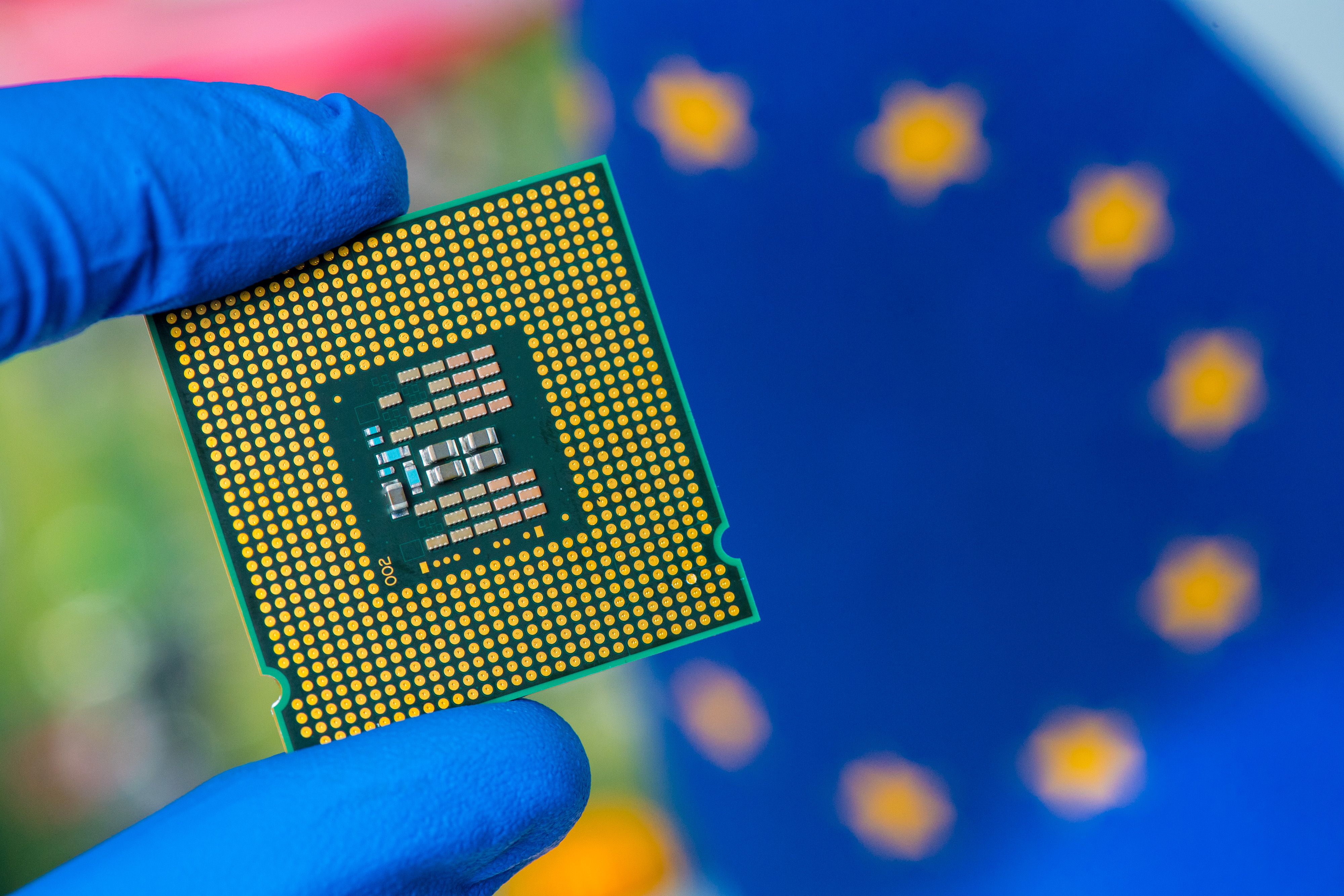Europe proposes €43 billion Chips Act to tackle semiconductor shortage
The EU is aiming to reduce its reliance on other markets and build its own semiconductor supply chain


The European Commission (EC) has proposed a European Chips Act today to bolster the bloc’s chip industry through billions of euros of investment and reduce its reliance on foreign supply chains of these components.
The EC said the new act is set to build a thriving semiconductor sector from research to production, and a resilient supply chain. This will be done by mobilising €43 billion euros of public and private investments, although it didn’t reveal how much of this was direct investment.
The act contains three main components. The first is the Chips for Europe Initiative, which is set to pool resources from the Union, member states, and third countries associated with the existing Union programmes, as well as the private sector. €11 billion will be made available to strengthen research, development, and innovation, to ensure the deployment of advanced semiconductor tools, train staff, and develop an understanding of the semiconductor ecosystem.
The EC will also create a new framework to ensure security of supply by attracting investments and enhanced production capacities. A new Chips Fund will facilitate access to finance for startups and help them mature their innovations and attract investors. This will include a dedicated semiconductor equity investment facility under InvestEU to support scaleups and SMEs to ease their market expansion.
RELATED RESOURCE

Software-defined storage for dummies
Control storage costs, enable hybrid cloud and simplify storage management
The proposed act will also include a coordination mechanism between member states and the commission for monitoring the supply of semiconductors, estimating demand, and anticipating shortages. This will monitor the value chain by gathering intelligence from companies to map primary weaknesses and bottlenecks.
“Chips are necessary for the green and digital transition - and for the competitiveness of European industry,” said Margrethe Vestager, executive vice-president for a Europe Fit for the Digital Age. “We should not rely on one country or one company to ensure safety of supply. We must do more together - in research, innovation, design, production facilities - to ensure that Europe will be stronger as a key actor in the global value chain.”
The EC has proposed an accompanying recommendation to member states, which is a tool that enables the coordination mechanism between member states and the EC to commence straight away. The EC said this will allow them to discuss and decide on timely and proportionate crisis response measures from now on.
Sign up today and you will receive a free copy of our Future Focus 2025 report - the leading guidance on AI, cybersecurity and other IT challenges as per 700+ senior executives
The EC is encouraging member states to start these coordination efforts to understand the current status of the semiconductor value chain across the EU and take corrective measures to overcome the current shortage until the new act is adopted. The European Parliament and member states will need to discuss the EC’s proposal of the European Chips Act in the ordinary legislative procedure.
Zach Marzouk is a former ITPro, CloudPro, and ChannelPro staff writer, covering topics like security, privacy, worker rights, and startups, primarily in the Asia Pacific and the US regions. Zach joined ITPro in 2017 where he was introduced to the world of B2B technology as a junior staff writer, before he returned to Argentina in 2018, working in communications and as a copywriter. In 2021, he made his way back to ITPro as a staff writer during the pandemic, before joining the world of freelance in 2022.
-
 European Commission approves data flows with UK for another six years
European Commission approves data flows with UK for another six yearsNews The European Commission says the UK can have seamless data flows for another six years despite recent rule changes
-
 Three things you need to know about the EU Data Act ahead of this week's big compliance deadline
Three things you need to know about the EU Data Act ahead of this week's big compliance deadlineNews A host of key provisions in the EU Data Act will come into effect on 12 September, and there’s a lot for businesses to unpack.
-
 The second enforcement deadline for the EU AI Act is approaching – here’s what businesses need to know about the General-Purpose AI Code of Practice
The second enforcement deadline for the EU AI Act is approaching – here’s what businesses need to know about the General-Purpose AI Code of PracticeNews General-purpose AI model providers will face heightened scrutiny
-
 Meta isn’t playing ball with the EU on the AI Act
Meta isn’t playing ball with the EU on the AI ActNews Europe is 'heading down the wrong path on AI', according to Meta, with the company accusing the EU of overreach
-
 ‘Confusing for developers and bad for users’: Apple launches appeal over ‘unprecedented’ EU fine
‘Confusing for developers and bad for users’: Apple launches appeal over ‘unprecedented’ EU fineNews Apple is pushing back against new app store rules imposed by the European Commission, suggesting a €500m fine is a step too far.
-
 Apple, Meta hit back at EU after landmark DMA fines
Apple, Meta hit back at EU after landmark DMA finesNews The European Commission has issued its first penalties under the EU Digital Markets Act (DMA), fining Apple €500 million and Meta €200m.
-
 ‘Europe could do it, but it's chosen not to do it’: Eric Schmidt thinks EU regulation will stifle AI innovation – but Britain has a huge opportunity
‘Europe could do it, but it's chosen not to do it’: Eric Schmidt thinks EU regulation will stifle AI innovation – but Britain has a huge opportunityNews Former Google CEO Eric Schmidt believes EU AI regulation is hampering innovation in the region and placing enterprises at a disadvantage.
-
 The EU just shelved its AI liability directive
The EU just shelved its AI liability directiveNews The European Commission has scrapped plans to introduce the AI Liability Directive aimed at protecting consumers from harmful AI systems.


